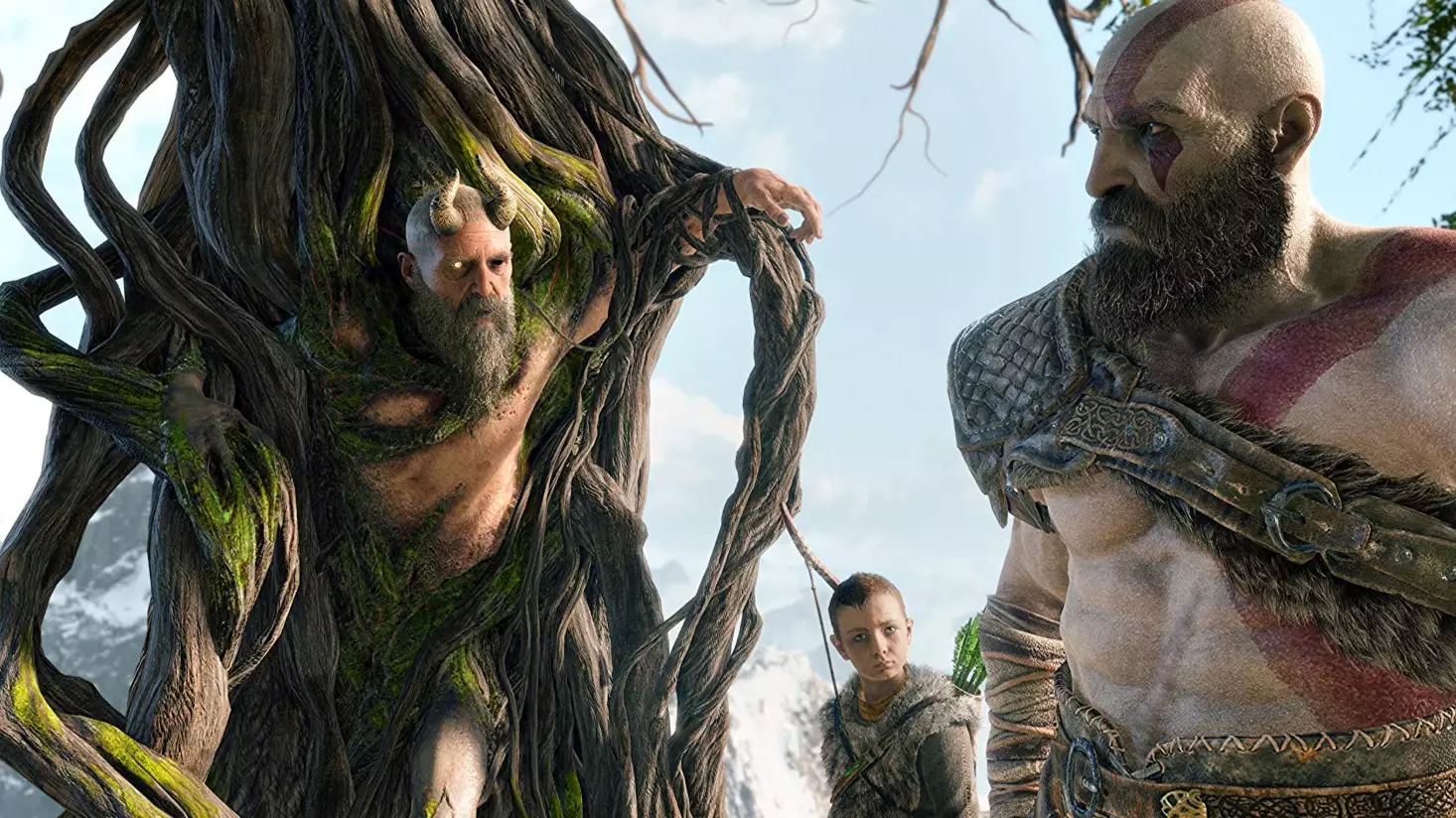
Before we begin, Spoiler Warning... We'll be discussing the story of God of War (2018) and the Norse myths that inspire it. Assuming you're okay with that, on we go.
When Sony Santa Monica moved God of War from Ancient Greece to the Scandinavian North for 2018's celebrated instalment, and brought in a whole new cast of gods, it didn't just let them grow the series' protagonist, Kratos, from a rageful warrior into a reserved father. It also gave them a whole new library of myths to draw from - stories of paranoid gods, petty elves, and squabbling dwarves.
Ragnarök, and the coming of it, may be the best-known feature of the Norse myths: a divine war between the Aesir gods and their monstrous enemies. But Norse mythology is full of stories of much less drama and death.
Advert
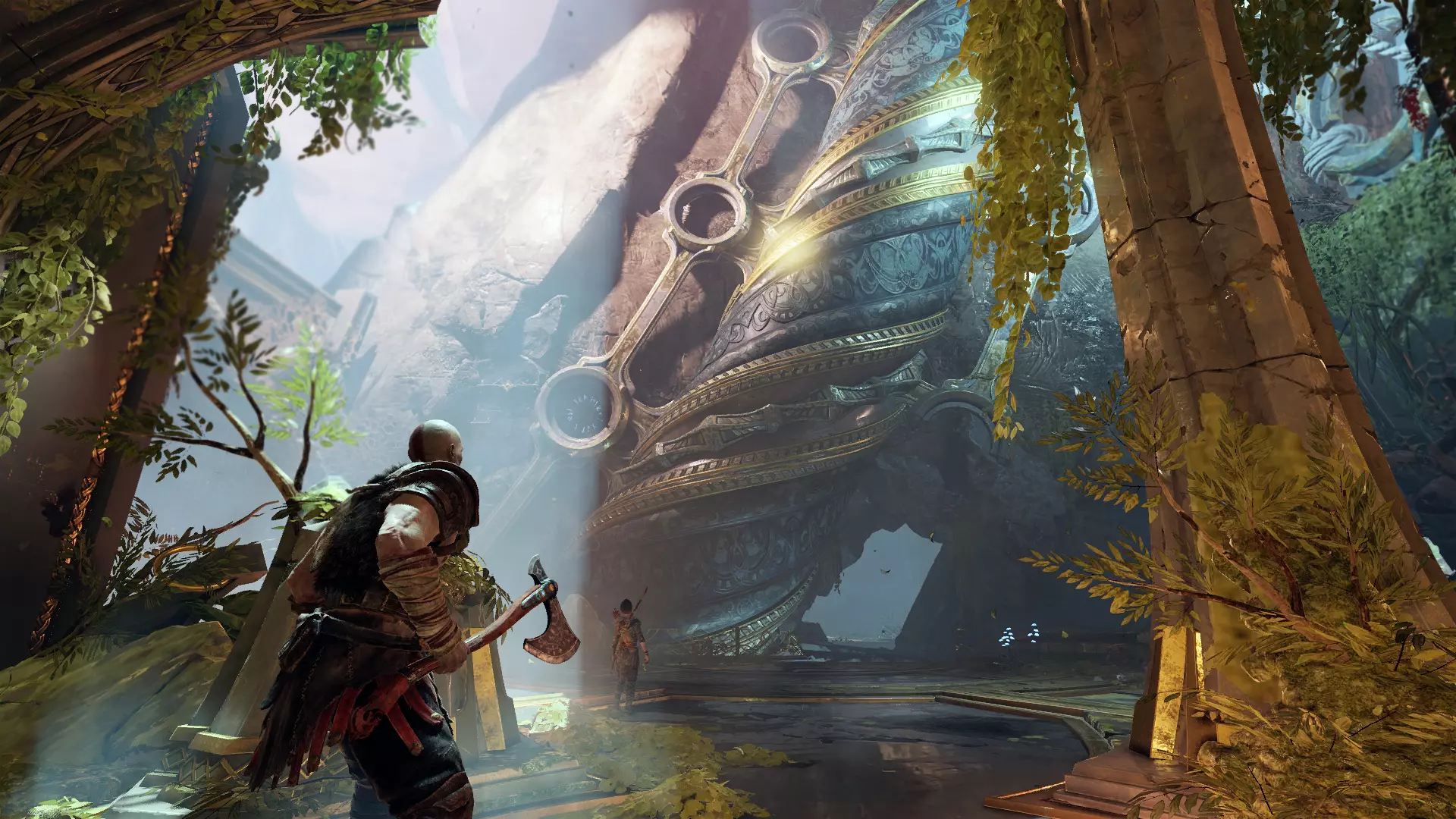
One such story sees Loki shaving the head of Thor's wife and then being forced to convince the dwarves to make her a wig of gold hairs to replace it. In another, Thor disguises himself as Freya (or Freyja, a goddess of love and beauty) in a wedding dress to trick a giant who has stolen his hammer, Mjölnir, into returning it to him. The Norse myths are full of strange tales, and they shoot right through 2018's God of War.
Said God of War ends with the big reveal of the true identity of Kratos' son, Atreus. It's a shocking conclusion, but one that also opens up huge possibilities for where the story will head in the next game. And, with that in mind, we can get some ideas of what to expect by picking through the Norse myths for what happens after the death of Baldur, son of Odin, the god of light and purity, at the end of 2018's release.
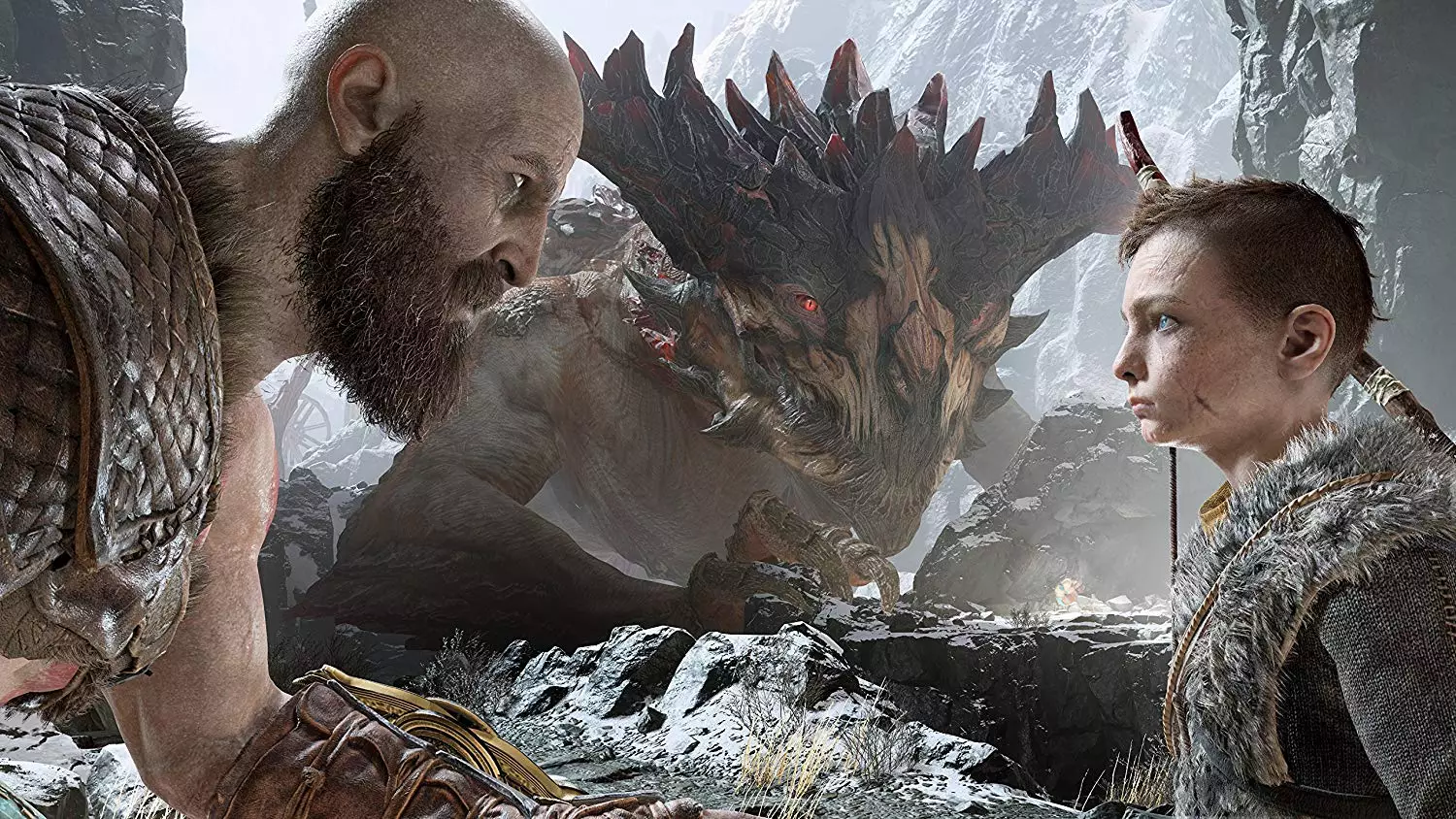
Loki's Children
If you spend some time reading the myths that 2018's God of War is based on, it quickly becomes a challenge to marry them to the game. Their timelines just don't match. Atreus is revealed to be Loki at the end of the game; but he appears to be no more than 10 or 11 years old, certainly pre-teen. He's also seemingly meeting characters for the first time who his history should be entwined with.
Advert
In Norse mythology, Loki has three particularly important children: Jörmungandr, Hel, and Fenrir. In Gylfaginning, one of the stories in the Prose Edda, a book of myths written around 1200 AD, Snorri Sturluson explains how among other children with other wives, Loki has three children with a giantess called Angroda. Jörmungandr is the world serpent that encircles Midgard; Hel is a half-living half dead child who Odin sends to Niflheim to reign over the dead who don't die in battle; and Fenrir is a giant wolf who grows so large that one day he will be able to eat the sun and moon.
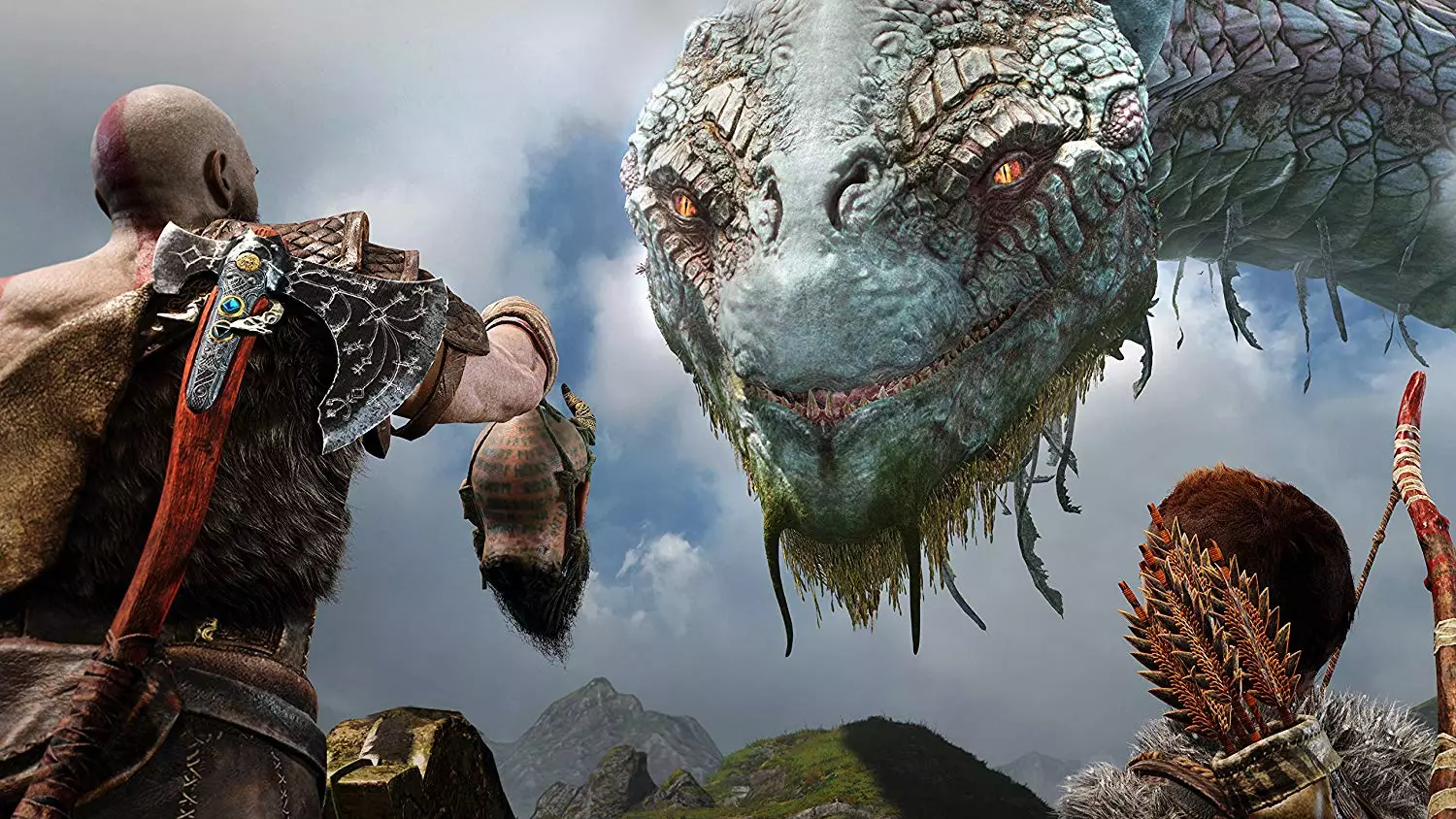
Yet, in the game, Atreus and Kratos meet Jörmungandr: a seemingly impossible event considering Atreus has not yet had any children. Except, in a piece of incidental dialogue, Mimir (the one who's just a head) tells Atreus that he "seemed familiar" to Jörmungandr - and while it's impossible they met before, "perhaps [the serpent] refers to something yet to be. It is said that when Jörmungandr and Thor battle at Ragnarök, their clash so violently shakes the Tree of Life that it splinters, casting the Serpent backward through time, even before his own birth."
This line suggests that future games may see Kratos and Atreus live through more of the myths and then travelling back in time to an earlier point in the world, taking other mythical creatures with them.
Advert
That would also mean that future games could introduce us to the giantess Angroda, and that there will be a time when Atreus has children he must care for. This would be a fascinating plot to appear in the game because we'd see Atreus turning what he has learned from his father into teachings for his children.
It would also explain something of why Loki works so hard to undermine the Aesir, if he's travelling to the past with the knowledge of what those gods do to his family.
Also, who wouldn't want to have a young-pup Fenrir as a companion? And considering he's supposed to kill Odin during Ragnarök, he'd certainly be a handy friend to keep around.
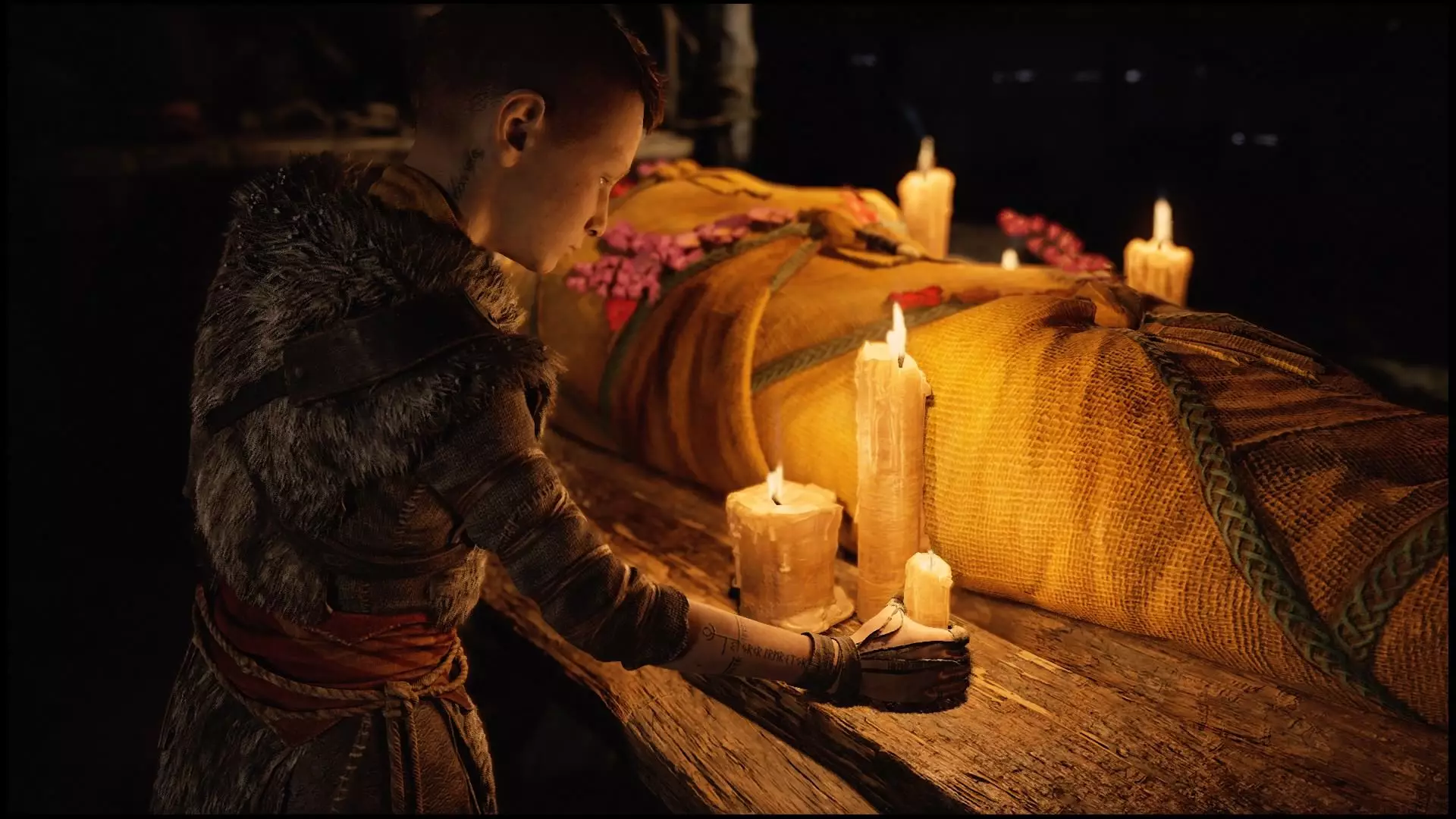
Laufey
God of War's creative director Cory Barlog has spoken about wanting to tell more of the story of Loki's mother, Laufey, in the next game. The team is pretty free to explore her story as there isn't much about her in the Norse myths. While her name appears in both the Prose and Poetic Eddas and number of the sagas, it's only as a way to name Loki. "Gentler in speech you were to Laufey's son when you had me invited to your bed," Loki says in the Poetic Edda, for instance.
Advert
There are a few possible translations of Laufey's name, such as "the one full of leaves" that suggests she was a tree goddess and another as "the one who awakens confidence", which seems like a good fit for God of War, considering Kratos' name translates to "courage". Laufey is also sometimes called Nál, which translates to "needle".
As far as we know, Laufey is dead. After all, God of War begins with you building her funeral pyre and the game's central story is Kratos and Atreus travelling to the highest peak in all the worlds to scatter her ashes. So if we're to meet her, that would lend credence to the time travel idea. Though, we may simply see her in memories instead.
While we're talking about Atreus' parents, in the Prose Edda there are also references to Fárbauti as Loki's father, a giant whose name means "heavy hitter". In God of War, there's no question that Kratos is Loki's father, so there may be no need to have Fárbauti feature, though maybe the character could feature as a previous partner of Faye's.
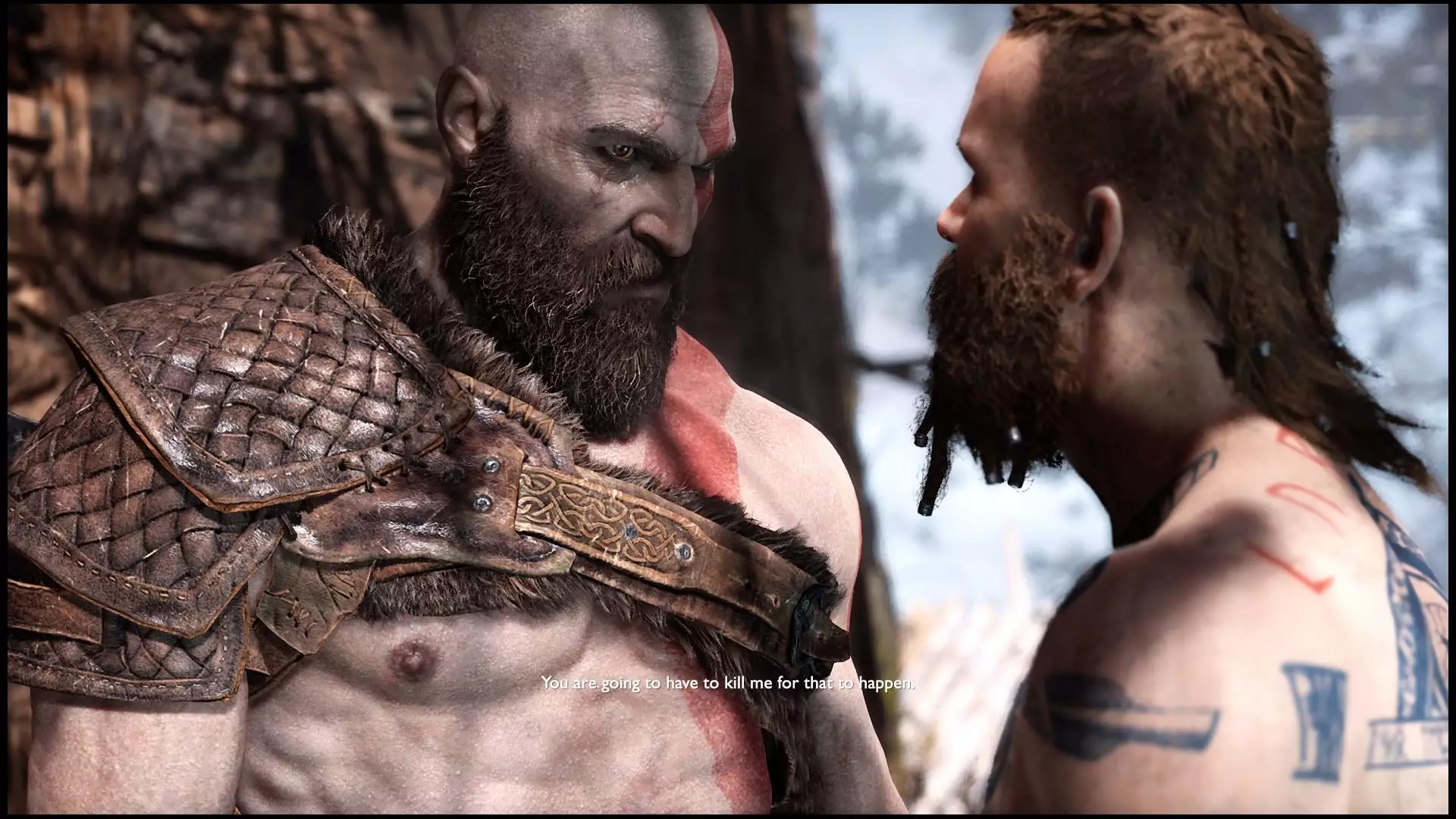
Vali
The final battle of God of War sees you kill Baldur, son of Odin. This is almost in line with the Norse myths where Loki tricks Hodur (or Hodr), Baldur's brother, into shooting Baldur with a mistletoe arrow. In both versions, Loki is ultimately responsible for Baldur's death. In some of the myths, after Baldur is killed a new god is introduced: Vali, Baldur's Avenger.
Advert
In the myths, Baldur is troubled with dreams of his death and these nightmares disturb the gods of Asgard. It's that which compels Frigg, Baldur's mother, to visit all the things in the world that could harm him and to demand them to make an oath not to harm her son. It's that which makes him invulnerable - to all but mistletoe, which she thinks is too weak to pose a threat to a god.
Meanwhile, Odin visits Hel and raises a dead seeress to tell him Baldur's fate. He learns that Hodur "will be Baldur's killer". Odin then asks, "Who'll achieve vengeance on Hodur for this wickedness, who'll bring Baldur's killer to the funeral pyre?" The seeress replies, "Rind will give birth to Vali in the Western halls, Odin's son will fight when one night old; he won't wash his hands nor comb his hair until he's brought to the pyre Baldur's enemy."
Now, in most of the myths Hodur is a blind god who is tricked by Loki to attack his brother Baldur with a mistletoe weapon, killing him. It's Hodur who Vali seeks vengeance against, even though Loki is at fault. Though, as Hodur doesn't appear in God of War, and it is Kratos and Atreus who kill Baldur, it would make sense that Vali would target Kratos instead.
In another story, the Gesta Danorum, the story of Vali is a much darker tale. In that telling, Odin doesn't visit the seer until after Baldur's death, and it's then he learns that he will have a son called Vali with a princess called Rindr, and that child will avenge Baldr. Rindr has no interest in Odin, however, so Odin disguises himself and rapes Rind, driving her mad in the process.
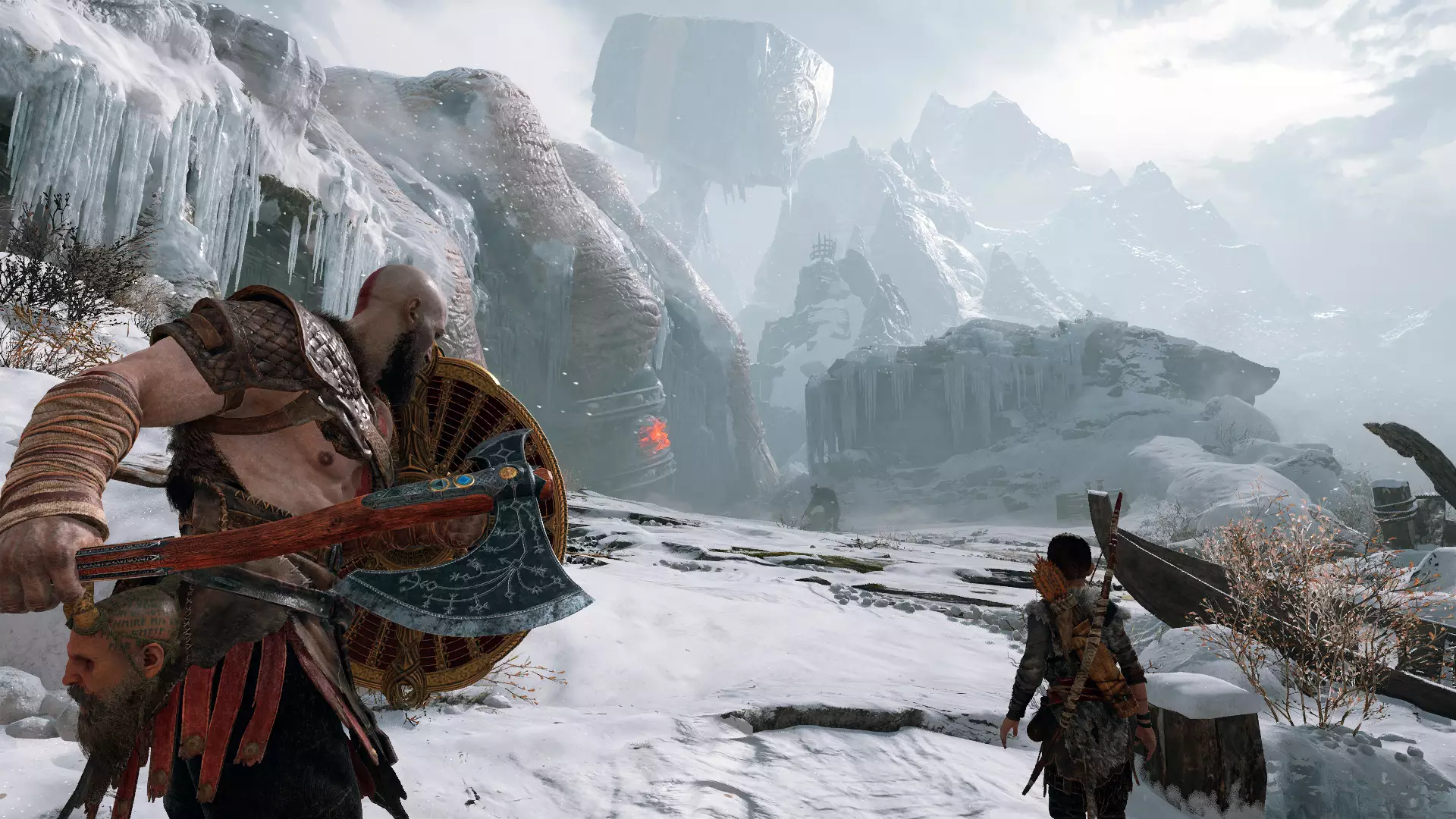
The Worlds Left To Visit
We learn in God of War that there are nine realms that branch off from the World Tree, Yggdrasil, but we only visit six of them: Midgard (the realm of men), Alfheim (the realm of the elves), Jötunheim (the realm of the giants), Muspelheim (the land of the fire giants), Helheim (the realm of the dead), and Niflheim (a realm that existed before all the others and without a ruler). The rest of the realms were locked off and unreachable.
Future games will almost certainly let us visit the remaining three: Asgard, Vanaheim, and Svartalfheim. Asgard is the realm of the Aesir gods - Odin, Thor, Heimdall, and all the rest - so as we take our war to them we're likely going to go a-knocking. Vanaheim is home to the Vanir gods - Njörðr and his twin children Freya and Freyr - and while we may not visit it in the current timeline, if we do travel in time we could go there when the Vanir were still at war with the Aesir. We could meet Freya before she is married off to Odin to broker peace. We might even meet her brother, Freyr.
The final realm, Svartalfheim, is the home of the dwarves and where Brok and Sindri made both Thor's hammer Mjölnir and Kratos' Leviathan Axe. Again, if we travel in time we may be able to have a hand in the creation of the axe - it was made by the dwarf brothers at the behest of Laufey, after all. We may even be able to sabotage Thor's hammer. In the Prose Edda there's a story that Loki distracts Brok as he works the bellows of the furnace as Sindri makes Mjölnir and, because of that distraction, Mjölnir's handle is shorter, meaning the god can only wield it with one hand.
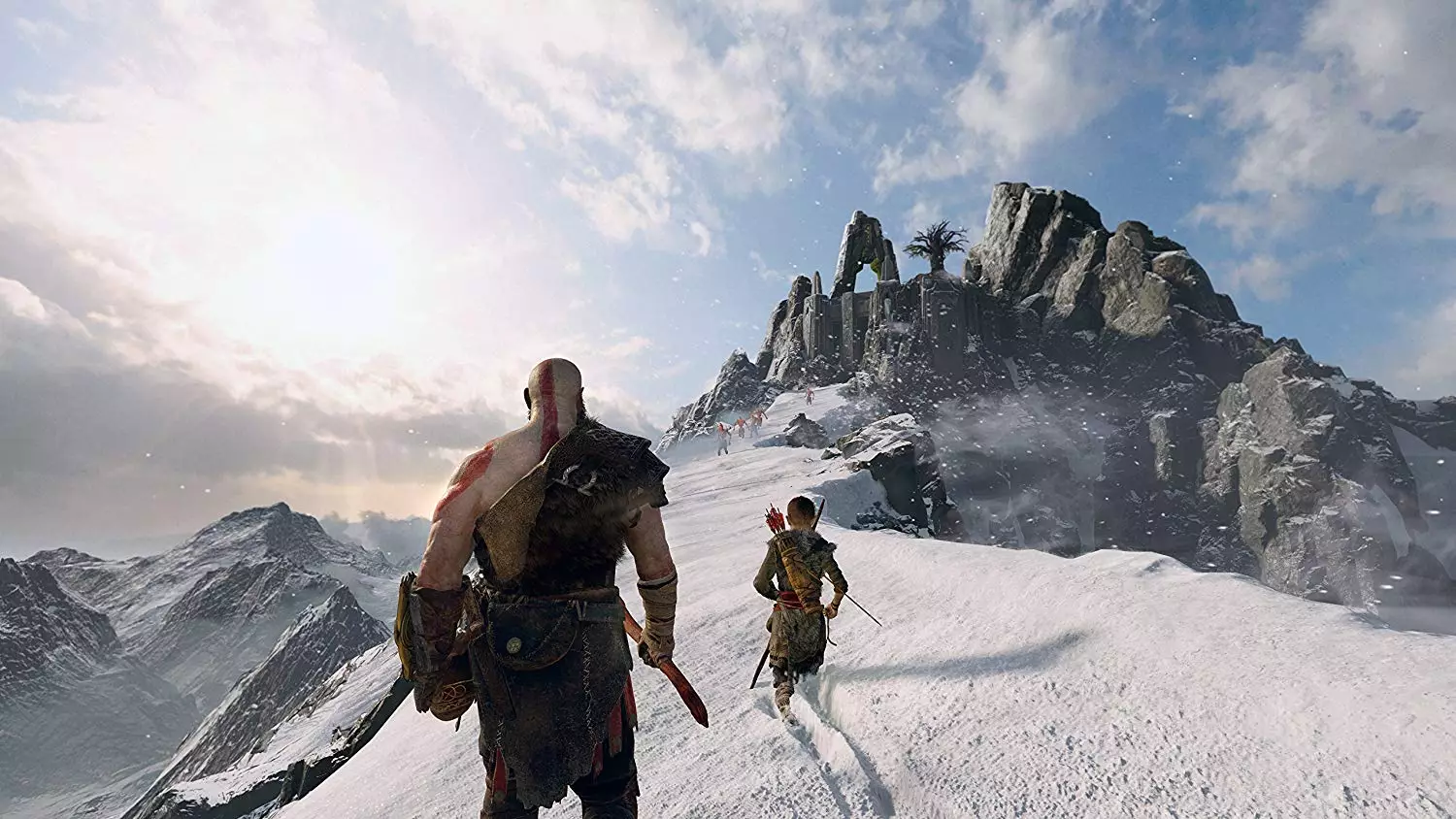
Fimbulwinter
There isn't a single definition of Fimbulwinter, in Snorri's Prose Edda, but he writes that it's a terrible winter that precedes Ragnarök. "Snow will drive in from all directions; the cold will be severe and the winds will be fierce. The sun will be of no use. Three of these winters will come, one after the other, with no summer in between." But in the poem Vafþrúðnismál, Odin talks of "The Famous Might Winter" as though that is Ragnarök itself.
While ill-defined in myth, Fimbulwinter appears to be the 'season' leading into Ragnarök in God of War. As Baldur dies, snow begins to fall, signifying this shift. And, in the true ending of the game, Thor visits Kratos and Atreus in their cabin, wrapped in a thick snowy winter. We only know that this visit happens "years later", and don't have a clear time frame, or if it's due to happen at some point in the next game, or even a game after that.
---
These are only a handful of the stories that the God of War team will be drawing from, and they will be changing them to fit their take on the sagas; but we can quickly get a sense of where the game's story is heading. In the current timeline, Atreus has started the series of events that leads to Ragnarök, the battle in which most of the Aesir gods are fated to die. Between now and then, however, he will need to gather his allies and build his army. He may even need to travel into the past to sew the seeds of those alliances.
If you've been enjoying God of War, then you could find reading the Prose and Poetic Eddas extremely rewarding. There's lots of collections of different sagas and different interpretations of the stories from writers like Neil Gaiman, too. Hopefully these will make the long winter between 2018's God of War and its inevitable sequel bearable.
This article is part of a God of War series that ran on GAMINGbible's Snapchat Discover edition. Be sure to subscribe to our three-times-weekly edition on Snapchat. You can also read about how God of War changes the Norse myths to fit its story, and how Kratos got his Leviathan Axe, online now.
Featured Image Credit: Sony Interactive EntertainmentTopics: PlayStation, God Of War